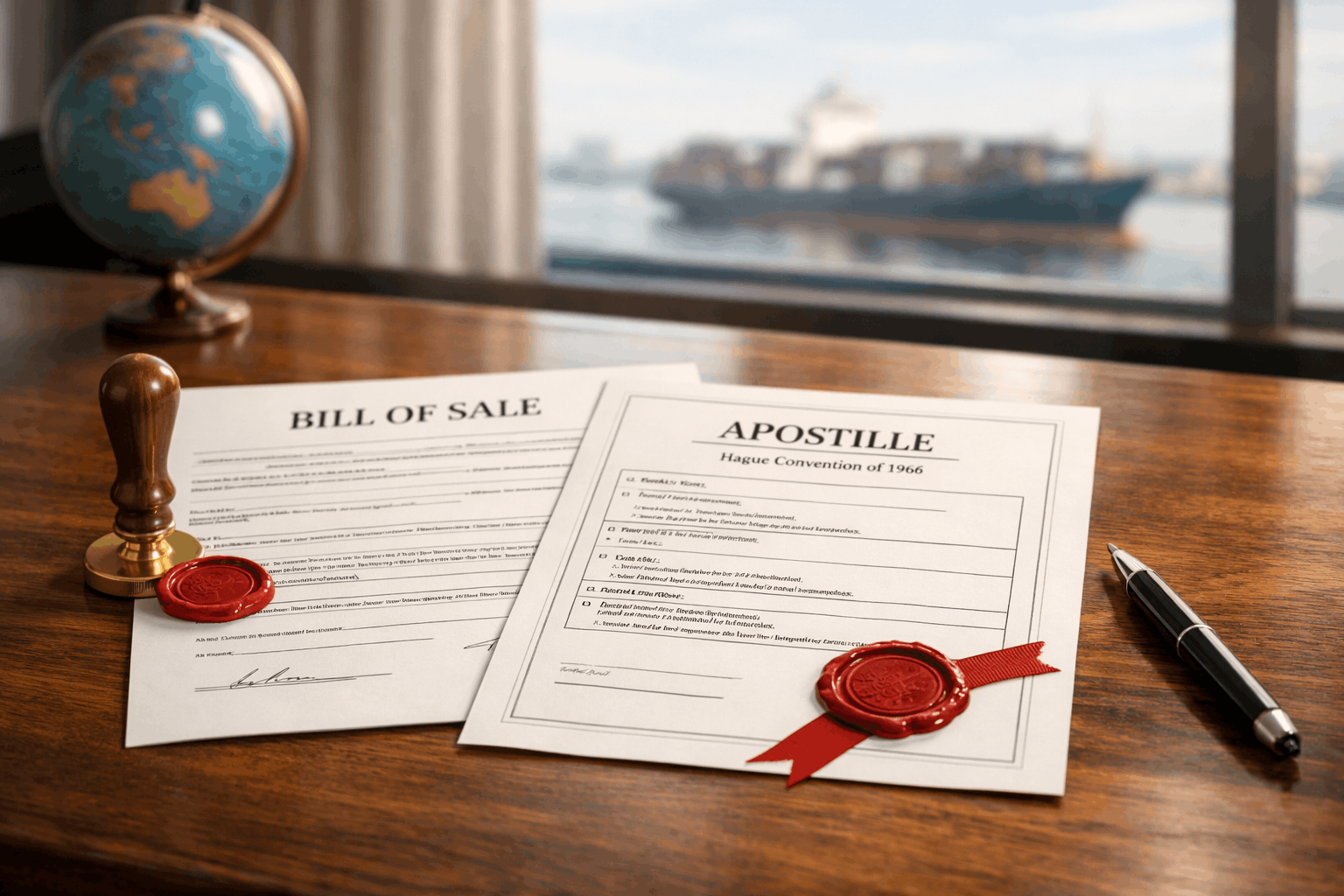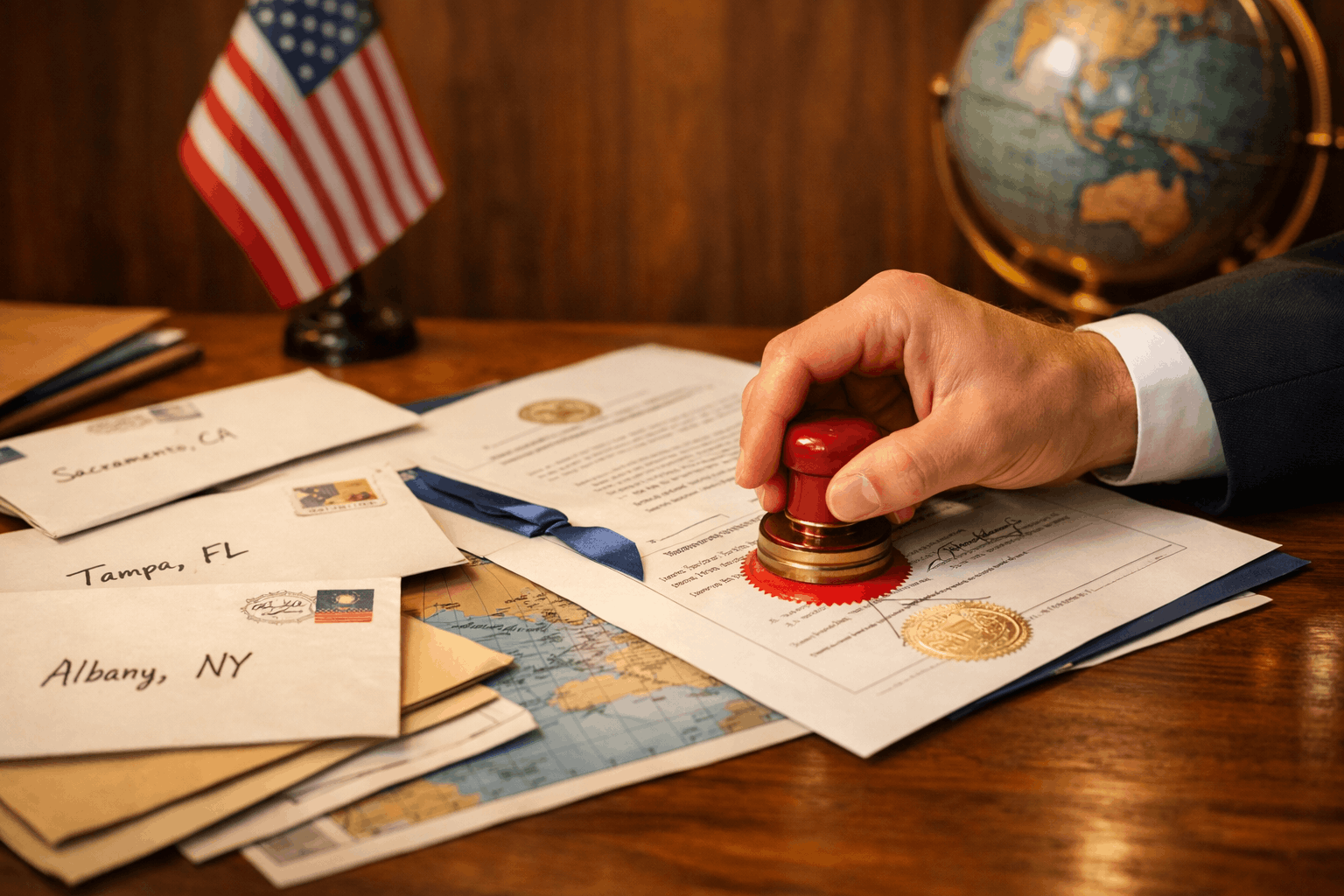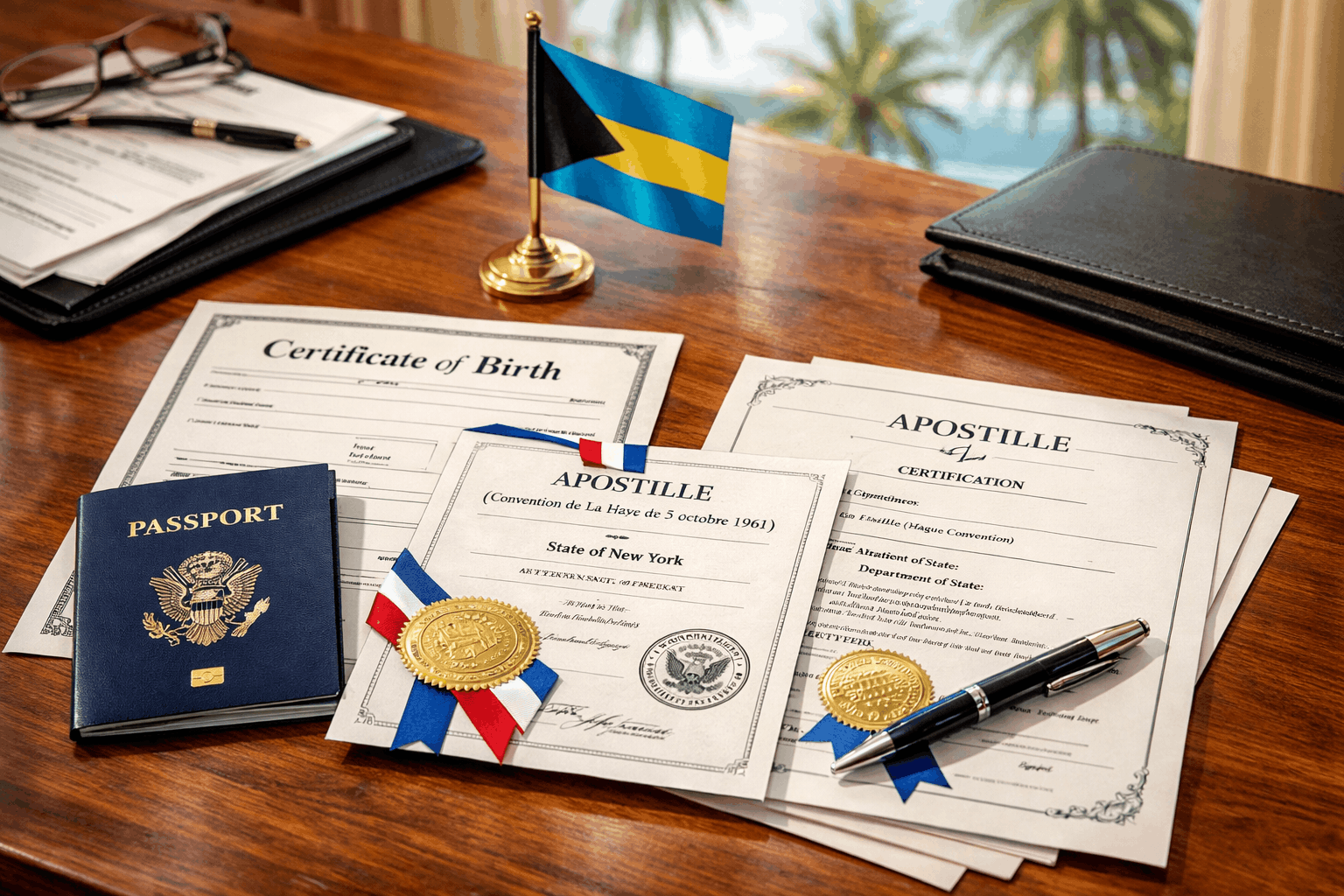
How to Get an Apostille in Pennsylvania
If you plan to study, work, or move abroad, chances are you’ll need to authenticate your documents before they’re accepted overseas. Although the process might appear complex initially, it becomes quite manageable after you grasp the steps. Getting an apostille in Pennsylvania confirms that your state-issued documents are valid and recognized internationally.
In this guide, you’ll learn which documents qualify, where to apply, what requirements to follow, and how to avoid the small mistakes that can slow things down.
Which Documents in Pennsylvania Can Be Apostilled
Not every document can go straight for authentication. Before you begin, it’s crucial to understand what qualifies and what must be notarized first. Most personal, educational, and business records issued in the state can receive a Pennsylvania apostille, as long as they’re official copies with proper signatures and seals.
Vital Records & Family Documents
Vital records are the most commonly requested documents for international use. These include birth certificates, marriage certificates, death certificates, and divorce decrees. Each one must be issued by the Pennsylvania Department of Health or the appropriate county office.
For example, a request for a birth certificate apostille in Pennsylvania requires a certified copy signed by the State Registrar. Certified copies must bear the signature and seal of the authorized state or county registrar. The same applies to marriage certificates, which must be signed by the Register of Wills or the Clerk of the Orphans’ Court and not by the officiant who performed the ceremony.
Educational, Business & Legal Documents
Many people also need authentication for school, work, or business purposes. Diplomas, transcripts, business registrations, and contracts all qualify for an apostille in Pennsylvania if they were issued within the state and have been properly notarized.
Universities and schools in Pennsylvania must issue original documents or certified copies signed by an authorized school official. Business papers, such as certificates of incorporation or powers of attorney, may require notarization before submission. Legal documents, including contracts or court orders, should carry a valid clerk or notary signature to ensure acceptance.
Federal and Notarized Documents
Certain documents originate at the federal level or require notarization before they’re eligible. Items like FBI background checks, U.S. Department of Justice papers, and notarized affidavits often go through a different process before being accepted for an apostille in PA. Federal documents, such as FBI background checks, are authenticated by the U.S. Department of State, not by Pennsylvania.
If you’re submitting a notarized document, make sure it includes a full notarial statement in English with the notary’s signature and seal. Translations or authorizations must also include a proper notarization before they can be certified by the state.
Where to Get an Apostille in Pennsylvania?
The Pennsylvania Department of State, through the Secretary of the Commonwealth, is the only authority that can issue a Pennsylvania Secretary of State apostille. You can’t obtain it from your county courthouse or a local notary.
Public documents, such as birth or death certificates, can go directly to the Department of State. However, if you’re dealing with private or business records, notarization is required before submission. In other words, notarized documents confirm authenticity at the local level, while the apostille verifies it for international use.
Key Requirements to Get an Apostille in Pennsylvania
Before sending your documents, double-check that they meet the key standards set by the state. Even small errors can cause rejection or delay. A complete and correct request ensures that your apostille in Pennsylvania is issued without complications.
Document Issuance & Validity
Some countries prefer recently issued documents, but the Pennsylvania Department of State doesn’t set a strict time limit. Older records might need re-issuance. For vital records, always use certified copies from the official agency, not photocopies or digital scans.
Proper Signatures, Seals & Certification
Every document must have the correct signature and seal from the authorized official. For example, a registrar or clerk must sign vital records, while notaries must provide their full name, commission number, and expiration date. Without these details, the apostille in Pennsylvania can’t be processed.
Cover Form, Destination Country & Fees
Each request must include the Apostille or Certification Request form, which asks for details such as your name, address, contact information, and the destination country. You’ll also need to pay the processing fee, which is currently $15 per document payable to “Commonwealth of Pennsylvania.” Missing or incorrect payment information is one of the most common reasons for delays when applying for an apostille in Pennsylvania.
Methods to Submit Your Apostille Request
The state offers multiple submission options depending on your schedule and location. Whether you prefer to go in person, mail your documents, or use a third-party service, each method can successfully get your apostilled birth certificate in Pennsylvania issued as long as your paperwork is complete.
In-person requests are ideal for those who need the document urgently. Walk-ins are available by appointment in Harrisburg, and same-day processing is common. Mailing your request is a convenient option if you’re outside the area, though it may take a few weeks.
There’s also a blue drop box at the Keystone Building in Harrisburg for after-hours submissions. Finally, using a professional apostille service can save time if you’re abroad or simply prefer assistance with the process.
Processing Times, Costs & Return Logistics
The time and cost can vary based on your submission method. Understanding these details helps you plan ahead and manage expectations while waiting for your Pennsylvania apostille to be completed.
Standard Processing Timeframes
If you visit in person, your apostille is usually ready the same day. Mailed or drop-box submissions generally take one to three weeks, depending on volume and mailing times. During busy seasons, such as early summer, processing can take longer.
Fees & Payment Methods
Each document costs $15, payable by check, money order, or credit card if you’re applying in person. However, cash isn’t accepted. If you use an apostille service, expect an additional service fee. Still, many find it worthwhile for the convenience, especially when submitting multiple apostilled Pennsylvania documents.
Return Methods & Delivery Options
You’ll need to provide a self-addressed return envelope with proper postage. If you’re mailing from abroad, use international tracking or a courier service. For in-person pickups, you can usually collect the completed documents the same day. Always keep a copy of your receipt for reference.
What a Pennsylvania Apostille Certificate Looks Like
The current Pennsylvania apostille is called the Universal Apostille Certificate. It’s a single-page document attached to your original record. According to some sources, Pennsylvania apostilles feature a multilingual format and electronic verification.
The apostille certificate doesn’t validate the document’s content — it simply verifies the signature and seal. An apostille is valid in Hague Convention countries. For non-Hague countries, you’ll need additional certification or embassy legalization.
After You Get the Apostille
Once your apostilled documents arrive, take a moment to verify everything. Small details matter when presenting documents abroad. A clean, complete certificate ensures that your apostille in PA will be recognized without issue.
Verifying Your Apostille & Document Integrity
You can confirm the authenticity of your certificate with the Pennsylvania Department of State using the identification number printed on the document. Never remove or detach the apostille from the original paper, as it will invalidate the authentication.
Using Your Apostilled Document Abroad
After verification, your documents are ready to be used overseas. Depending on the destination, you may need to present them at embassies, universities, or immigration offices. Having a valid apostille from Pennsylvania ensures officials abroad recognize the authenticity of your paperwork without extra legalization steps.
Common Use Cases & Scenarios
People commonly need apostilles for immigration, study, international marriage, or dual citizenship applications. Business owners may also require them for contracts or foreign registration. Whether you’re moving abroad for work or reconnecting with family roots, a properly issued Pennsylvania apostille ensures your documents meet international legal standards.
Checklist for Avoiding Delays
Even minor oversights can cause setbacks, but a few precautions can save you time. Before sending your documents for an apostille in Pennsylvania, make sure they’re official copies with visible seals and signatures. Use reliable courier services with tracking to monitor your delivery.
If possible, contact the Department of State to confirm office hours and processing times. Keep extra certified copies ready in case one set is rejected. Finally, check your document status early to avoid unnecessary waiting. Preparation is the simplest way to ensure a smooth process.
Completing Your Pennsylvania Apostille Process
Getting an apostille in Pennsylvania isn’t complicated once you understand the process. Whether you’re authenticating personal, educational, or business documents, careful preparation ensures a smooth and timely experience. With the right copies, proper signatures, and accurate forms, you can have your papers certified and ready for international use in no time.
In the end, remember that the Department of State is your official source for all apostilles in the Commonwealth. Choose the submission method that best fits your situation and double-check your paperwork before sending it off.
FAQ
What’s the difference between an apostille and a certification?
An apostille is used for countries that are part of the Hague Apostille Convention, while certification is for those that are not. Both confirm the authenticity of a document issued in Pennsylvania.
Can I get an apostille on the same day in Pennsylvania?
Yes, you can usually get same-day service if you visit the Harrisburg office in person. Arrive early to allow enough time for your Pennsylvania Secretary of State apostille to be processed before the office closes.
What if my document was issued outside of Pennsylvania?
Documents must be issued within Pennsylvania to qualify. If your record comes from another state, you’ll need to apply for the apostille through that state’s Department of State or equivalent agency.
Can I request a Pennsylvania apostille if I’m currently abroad?
Yes. You can mail your documents to the Department of State or use a trusted third-party service that submits on your behalf. Make sure your apostilled Pennsylvania documents include the correct payment and a return envelope with international tracking.
What happens if my application is rejected or incomplete?
If your request is missing information, payment, or proper certification, it’ll be returned to you with a note explaining what needs correction. Fix the issue and resubmit the application. Checking every detail before sending your apostille in PA request can prevent most delays.





